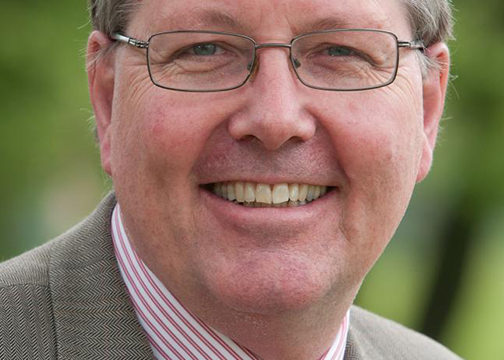Originally Published by Science
***
Peter Littlewood, a theoretical condensed matter physicist who cut his teeth at the famed Bell Labs in New Jersey, has been named the new director of Argonne National Laboratory in Lemont, Illinois, effective 1 April. One of 10 national labs run by the Department of Energy's (DOE's) Office of Science, Argonne has an annual budget of $722 million and a staff of 3350. Littlewood replaces Eric Isaacs, also a Bell Labs veteran, who is stepping down to become the provost of the University of Chicago, which runs Argonne for DOE.
"Peter is a guy with a good sense of what science is worth doing, so I think he'll be working at the hands-on level to direct things," says William Brinkman, a theorist who worked at Bell Labs for many years and served as director of the Office of Science from 2009 to 2013. Although Argonne is mainly an experimental lab and Littlewood is a theorist, he will have no trouble keeping up with what's going on, Brinkman predicts. At Bell Labs, Littlewood worked closely with experimentalists, Brinkman says, and being a theorist "probably gives him the ability to pull back a little and see the bigger picture."
Littlewood already knows plenty about administration in general and Argonne in particular. Since 2011, he has been the lab's associate director for physical sciences and engineering. Prior to that, he served for 6 years as director of the Cavendish Laboratory at the University of Cambridge in the United Kingdom, the same university from which he received his doctorate in 1980. Littlewood worked at Bell Labs from 1980 to 1997, eventually heading the lab's theory division.
Argonne is home to the Advanced Photon Source (APS), the brightest x-ray synchrotron in the Western Hemisphere; the Mira supercomputer; and numerous other facilities. Given the broad spectrum of research that it supports—ranging from materials science and chemistry to structural biology, and from combustion research to cosmology—Argonne has fared better than some DOE labs in recent years. Although since last October, it has cut 100 staff members through buyouts and layoffs. Nevertheless, Littlewood takes the director's chair brimming with enthusiasm. "The main thing I wanted and I think I got [by coming to Argonne] is a chance to work on really hard, important problems that can only be addressed in a collaborative way," he says. "The issue with budgets is that people have to make choices, and if you want to tilt that debate you have to actually be in it."
A U.K. citizen and permanent resident of the United States, Littlewood says he's encouraged by the generally bipartisan support for science in the United States. "I find that the fundamental gut-level commitment to science is very strong, regardless of which side of the aisle you're on," he says.
Argonne has some programmatic issues on its plate, Brinkman says. Accelerator researchers had been planning a $400 million upgrade to the APS, which turned on in 1996. However, last July a DOE advisory panel urged the agency to rethink the upgrade and pursue a much more ambitious plan that would require a complete rebuild of the accelerator at the heart of the facility. "That's a big challenge to get that done in a reasonable time," says Brinkman, who adds that the previous plan was "the wrong direction." Similarly, last year Argonne started up the $125 million Joint Center for Energy Storage Research, a so-called energy innovation hub that aims to develop in 5 years a battery that can pack five times as much energy as a current lithium-ion battery for one-fifth the cost.
Littlewood agrees that such efforts are immediate priorities. But when asked about big challenges, he first points to something else. "Diversity, which is a problem for the whole scientific community," Littlewood says. "I don't work with as diverse a group of colleagues as I would like, and realistically if we don't look like the rest of the world, we go extinct." Pretty clearly, Littlewood sees his new job as more than just managing projects and keeping budgets in order.



